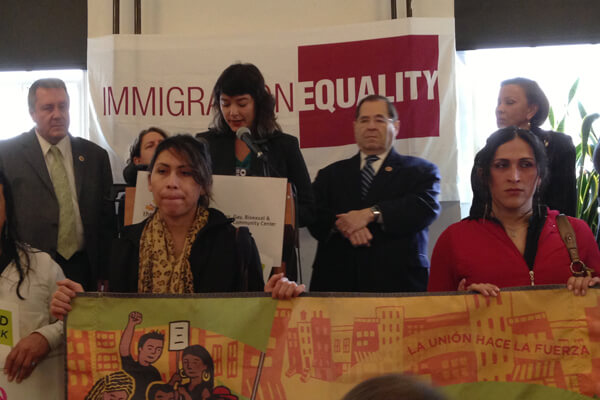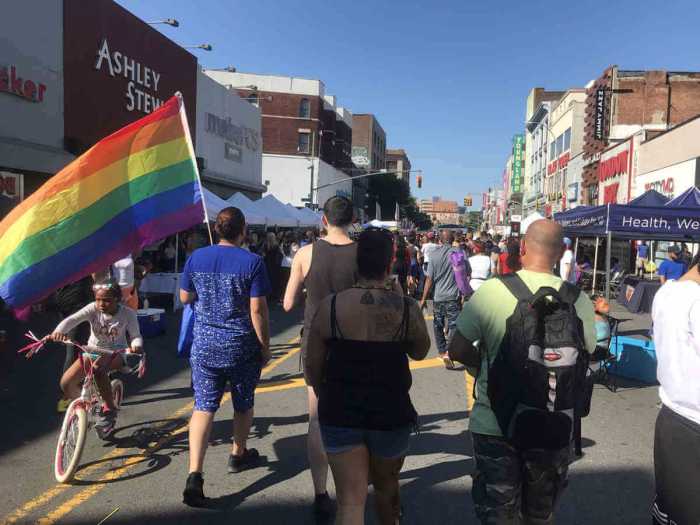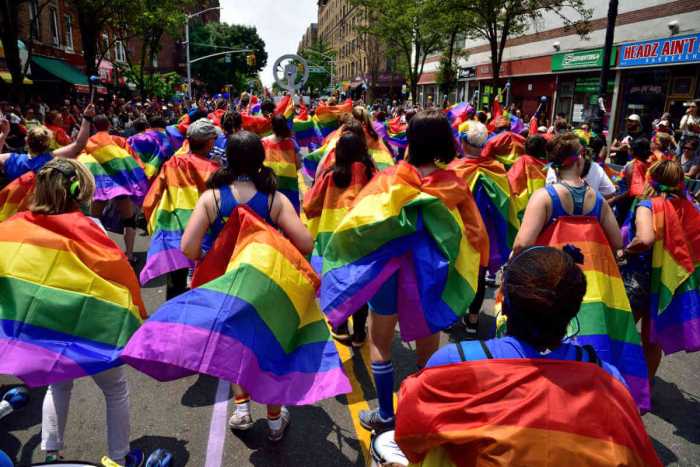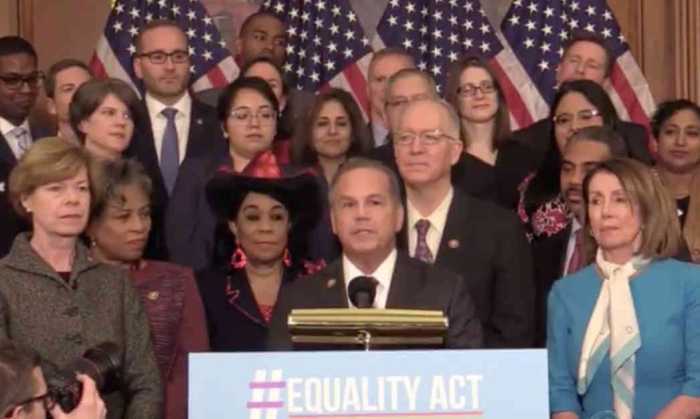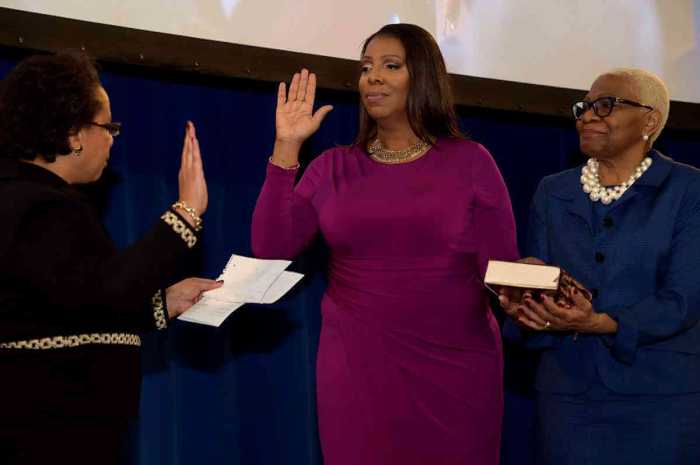City Councilman Daniel Dromm, Make the Road New York’s Karina Claudio-Betancourt, and US Represenatives Jerry Nadler and Nydia Velázquez at the March 18 press conference. | GAY CITY NEWS
As the Senate’s so-called Gang of Eight struggles to put together a legislative package for comprehensive immigration reform, the most important message LGBT advocates and members of Congress hoped to convey in a March 18 press conference came right at the top. “To Senator Schumer and the other senators who are writing this bill, please think about these people,” said Glennda Testone in welcoming her fellow speakers to the LGBT Community Center, where she serves as executive director.
On January 28, Schumer, three Democratic Senate colleagues, and four Republicans issued a memorandum outlining their agreement on the broad parameters for immigration reform. It included no mention of ending the disparate treatment of same-sex couples relative to married heterosexual couples where one partner is an immigrant. Under the 1996 federal Defense of Marriage Act, even if such a gay or lesbian couple is legally married, that marriage cannot be recognized by the US government for immigration purposes.
Schumer has consistently reiterated his commitment to righting that wrong, but when President Barack Obama, the day after the Senate memorandum was issued, announced his own reform framework that addressed same-sex couples, Republicans John McCain and Lindsey Graham immediately cried foul, saying that would doom bipartisan agreement.
Advocates press for LGBT-inclusive legislation
At the Center press conference, Manhattan Democratic Congressman Jerry Nadler, whose Uniting American Families Act (UAFA) champions the cause of binational same-sex couples, voiced determination to include that measure as part of any comprehensive reform enacted, saying it is “our passionate and unyielding demand.”
Congresswoman Nydia Velázquez, a Democrat whose district straddles Manhattan, Queens, and Brooklyn, gave Nadler unambiguous support, saying, “It would be cruel if immigration reform left behind an entire class based on their sexual orientation.” Arguing that the Hispanic community supports the inclusion of relief for same-sex couples in reform legislation, she said, “We are saying with one voice, we will not leave you behind.”
Rachel Tiven, executive director of Immigration Equality — which advocates for LGBT and HIV/ AIDS-affected immigrants and co-hosted the press conference with Make the Road New York, a social justice organization — also noted the critical bottleneck the Senate negotiators pose in the reform drive. “The White House has done a great job,” she said. “We want the Senate to do the same thing.”
Asked if he were confident that Schumer and other Democrats among the Gang of Eight shared his determination to ensure that UAFA makes it into the reform legislation, Nadler said that he had spoken to some of them, but could not speak for them all. He pointed, however, to a firewall — the pledge from Senate Judiciary Chair Patrick Leahy, a Vermont Democrat, that he would “insist” on an amendment incorporating UAFA if it is not in the bill when it goes before his committee.
Others who spoke at the press conference noted that family and partnership recognition is not the only issue facing LGBT immigrants. Karina Claudio-Betancourt, Make the Road’s lead community organizer, pointed to estimates that 300,000 of the roughly 11 million undocumented immigrants in the US are LGBTQ.
Lynly Egyes, an attorney with the Sex Workers Project at the Urban Justice Center, said transgender immigrants can be tripped up in the criminal justice system. Many, she said, are profiled for false prostitution arrests and others are engaged in either survival or coerced sex work. Under current immigration law, even misdemeanor arrests for solicitation can doom an immigrant’s chance of staying. Sienna Baskin, co-director of the Sex Workers Project, told Gay City News her group had “not been able to be very involved” in the reform effort, “so we are not sure whether our concerns are making it into the debates at a higher level.
Egyes noted that for immigrants fleeing their homelands due to persecution based on their sexual orientation or gender identity, liberalization of procedures for seeking asylum is critically needed.

